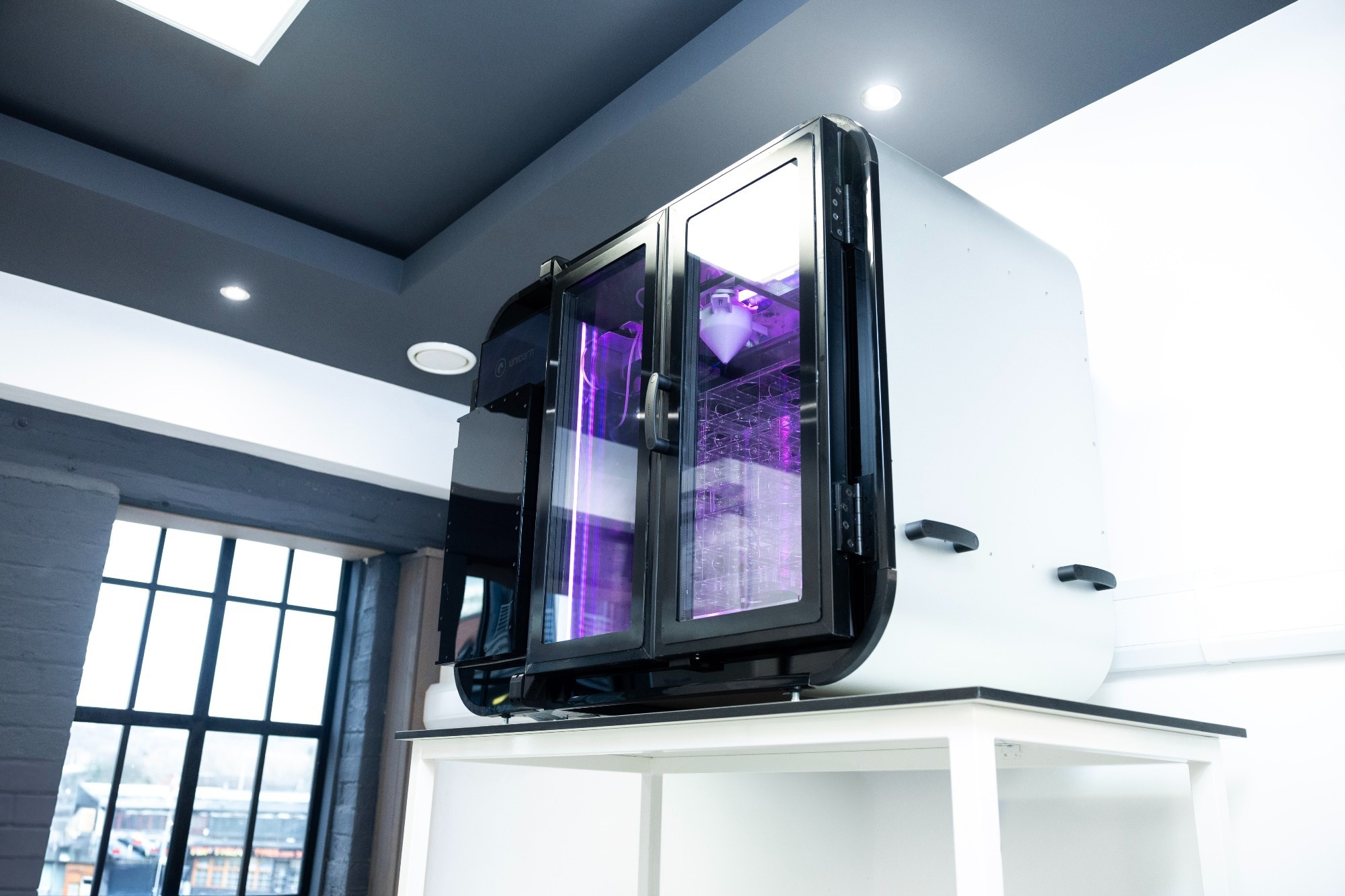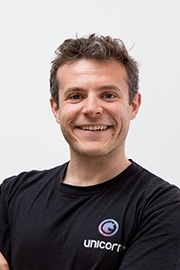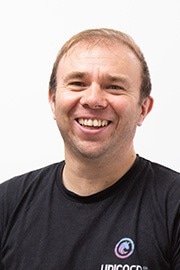To start out off, may you introduce yourselves and Unicorn Biotechnologies?
Jack: I’m Jack, one of many co-founders of Unicorn Biotechnologies. My background is in chemistry, and I’ve labored throughout academia, trade, and startups. I actually get pleasure from working on the intersection of science and engineering—turning lab-based science into real-world options. Adam and I met through the pandemic on Zoom, and we really began the corporate earlier than ever assembly in particular person.
Adam: I did my PhD in most cancers analysis over 15 years in the past, then moved into stem cell analysis and tissue engineering. After a stint in large trade, I spotted innovation thrives extra in startups. I received into {hardware} engineering as a result of I couldn’t consider how a lot of cell tradition was nonetheless guide. That’s the place Unicorn got here in—we’re attempting to automate these laborious processes and produce reproducibility to cell tradition, which has been a problem for many years.
The place did the title “Unicorn Biotechnologies” come from?
Adam: There are two true tales. First, unicorn corporations are startups valued over a billion {dollars}, so it’s a cheeky objective. Second, we had quarter-hour to register an organization title and located Unicorn Biotechnologies was accessible. Additionally, the unicorn is the nationwide animal of Scotland, the place I’m from, and my son—who helped with our early lab work throughout lockdown—cherished the title. He nonetheless calls it “Daddy’s firm” each time he sees a unicorn in a retailer.
Emmet is described as a totally built-in, benchtop cell tradition automation system—what units it other than different options at the moment available on the market?
Jack: Automating cell tradition isn’t a brand new thought, however earlier programs have three main drawbacks—they’re large, costly, and never at all times reproducible. Some are the scale of a number of Volkswagens and price seven figures. They’re additionally usually constructed from repurposed lab automation {hardware}, which results in variability. With Emmet, we constructed a purpose-designed system that integrates every part right into a compact benchtop system. It’s extra reproducible, extra inexpensive, and extra accessible for on a regular basis labs.

The Emmet System. Picture Credit: Unicorn Biotechnologies
Stroll us by means of a typical person workflow with Emmet. How does a scientist or person design a cell tradition protocol and arrange the instrument?
Adam: Our software program is designed with scientists in thoughts. Many corporations bolt on software program on the finish, however for us, the software program and {hardware} have been co-designed. Customers can enter their commonplace working procedures—like seeding, passaging, or differentiating cells—and customise fluid movement, rocking frequency, and different parameters. Setup is tremendous intuitive, like utilizing a capsule-based espresso machine. Sooner or later, we would like Emmet to include suggestions loops and real-time decision-making, eradicating the variability of human enter altogether.
Modularity and scalability are key tendencies in automation—how does Emmet assist labs that need to scale operations or adapt to evolving experimental wants?
Jack: Emmet is modular and versatile each internally and externally. Internally, customers can change {hardware} and software program settings rapidly. For instance, switching from six to 12 T-flasks may be accomplished in minutes. Externally, the system suits on any commonplace lab bench. To scale, labs can merely add extra Emmet models with out having to reengineer their course of, making tech switch and scaling a lot easier.
Reliability and uptime are essential in high-throughput environments. What options or engineering choices guarantee Emmet delivers constant efficiency below steady use?
Adam: We prioritize high quality management and reproducibility. We use onboard imaging and sensing programs for pH, glucose, and lactate. We’re additionally creating biochemical fingerprinting instruments. As an alternative of subjective choices like “it appears to be like 80% confluent,” we generate actual knowledge to information actions. This standardizes processes and reduces the artisan-like variability that also exists in lots of labs.
What sorts of use instances or utility areas have you ever seen probably the most curiosity in for Emmet—screening campaigns, toxicology research, regenerative medication improvement, one thing else?
Jack: All the above. Most labs, even high-tech ones, nonetheless do cell tradition manually. We validated Emmet with delicate pluripotent stem cells, and if it may well deal with these, it may well deal with virtually any mammalian cell line—from iPSCs to most cancers cell strains to HEK cells for viral vector manufacturing.
Trying forward, how do you envision Emmet evolving—are there plans to increase its capabilities or combine extra AI/ML-driven performance for decision-making?
Adam: Completely. We already use imaging and machine studying to watch confluence and determine cell varieties. The following step is predictive analytics—giving Emmet a goal end result and letting it work out the protocol. We’re experimenting with LLMs like ChatGPT to design experiments mechanically. It’s like constructing a discovery engine.
Jack: (laughs) Simply to make clear—we’re not in a partnership with OpenAI… however we’d like to be!
How has the response been at SLAS 2025 thus far? Are there any recurring questions or stunning suggestions you’ve acquired from attendees?
Jack: It was superb. From the second the exhibition opened to the minute it closed, we had fixed curiosity. Most of it was natural—folks noticed our discuss or have been drawn in by our stuffed unicorns—and we had deep, significant conversations with of us who really want what we’re providing.
SLAS is thought for fostering collaboration and innovation. Have there been any thrilling partnership discussions or new alternatives sparked through the exhibition?
Jack: Sure, we had nice conversations with folks in our superb buyer profile—scientists coping with guide cell tradition points who need a greater answer. They see actual enterprise worth in Emmet—much less FTE time, higher consistency, and fewer delays as a consequence of human scheduling.
What do you personally get pleasure from most about being a part of SLAS, and the way does it contribute to Unicorn’s innovation journey?
Jack: The perfect half? Undoubtedly the stuffed unicorns! However significantly, in-person conversations are invaluable. We discovered extra and had extra productive business interactions in two days at SLAS than we’d from months of e mail outreach. It’s that spontaneous hallway magic—you may’t beat it.
Lastly, what’s subsequent for Unicorn Biotechnologies?
Jack: We’re scaling up deployments—already within the UK, with US and EU expansions coming quickly. Past Emmet, we have now different R&D merchandise within the pipeline, together with GMP-ready variations and smaller-scale programs for early discovery.
Adam: We wish Emmet programs to be as widespread as PCR machines—serving to researchers throughout most cancers, stem cells, vaccines, and past. It’s about creating an outsized affect throughout all of science.
The place can readers discover extra info?
Emmet: https://www.unicornb.io/machines/emmet
Unicorn Biotechnologies’ LinkedIn: https://www.linkedin.com/firm/unicorn-biotechnologies/
Concerning the Audio system
Jack Reid holds a level in Chemistry and has labored throughout educational and business R&D settings earlier than co-founding Unicorn Biotechnologies. His expertise spans multinational companies and agile startups, with a ardour for translating science into scalable applied sciences. His management focuses on product innovation, user-centric design, and startup ecosystem improvement.
translating science into scalable applied sciences. His management focuses on product innovation, user-centric design, and startup ecosystem improvement.
Dr. Adam Glen earned his PhD in most cancers analysis and has labored throughout academia, large trade (GE Healthcare), and biotech startups. He has developed experience in stem cell biology, tissue engineering, and {hardware} integration for all times science functions. Adam co-founded Unicorn Biotechnologies with a mission to automate and simplify cell tradition workflows, impressed by his firsthand expertise with the inefficiencies of guide lab work.
integration for all times science functions. Adam co-founded Unicorn Biotechnologies with a mission to automate and simplify cell tradition workflows, impressed by his firsthand expertise with the inefficiencies of guide lab work.


